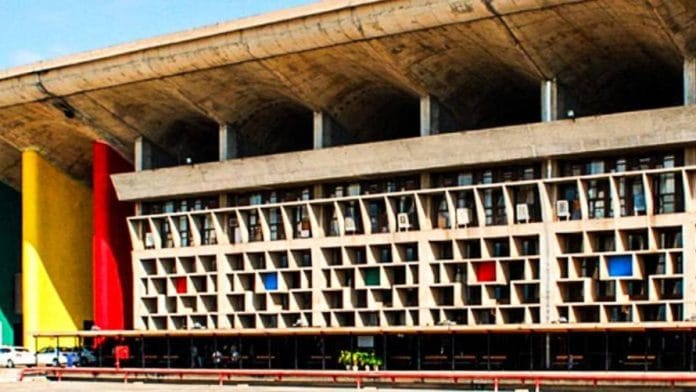Chandigarh: The Punjab and Haryana High Court has emphasised that courts cannot indirectly endorse live-in relationships involving minors, asserting that the welfare of the minor must always be paramount.
Justice Sumeet Goel delivered this significant judgment while hearing a petition involving a 17-year-old girl seeking protection in a live-in arrangement. The case was brought before the high court by Arshdeep Singh and a woman petitioner (name withheld by ThePrint because of her minor status), who sought protection from threats to their life and liberty.
The minor girl, expressing her willingness to reside with her partner, argued that their relationship was consensual and should be protected under Article 21 of the Constitution, which guarantees the right to life and personal liberty.
In the judgment delivered on 27 March, Justice Goel rejected this premise, stating that the courts, as custodians of the law, cannot implicitly validate relationships that go against legal principles, particularly those concerning minors. “The court cannot indirectly endorse or provide legitimacy to a live-in relationship involving a minor,” he ruled, reinforcing that the law is designed to protect minors from exploitation and ensure their well-being.
The judgment leaned heavily on the legal incapacity of minors to enter into contracts or make autonomous choices, drawing from a division bench ruling in Yash Pal and Another vs. State of Haryana (2024). The court articulated a robust stance against extending protection to live-in relationships involving minors, framing its reasoning around statutory and moral imperatives in that case.
This disability extends to making choices about live-in relationships, whether with an adult or another minor. “A minor… is incompetent to contract. If so, he/she has no capacity even to make choices or to express his/her freedom,” the court quoted from the 2024 case, emphasising that such freedoms are “ably fettered” by law.
The court observed that minors, irrespective of religious denomination, lack the legal capacity to contract under statutes like the Hindu Minority and Guardianship Act, 1956, the Guardians and Wards Act, 1890, and the Indian Majority Act, 1875.
The judgment reaffirmed that under the Protection of Children from Sexual Offences (POCSO) Act, 2012, any physical relationship involving a minor is deemed statutory rape, irrespective of consent.
The court also cited provisions of the Prohibition of Child Marriage Act, 2006, which prohibit marriages involving minors and aim to prevent their exploitation under the guise of social or personal arrangements.
Justice Goel stressed that the court’s primary duty is to act as parens patriae (legal protector) for minors, prioritising their welfare over their expressed desires. Granting protection to a minor in a live-in relationship, the court warned, would undermine this duty. “The paramount consideration remains the welfare and well-being of the minor in question,” the judgment stated, directing that custody should ideally revert to parents or natural guardians unless threats to life necessitate alternative measures under the Juvenile Justice Act, 2015.
The court cautioned that offering protection in such cases would amount to an “implicit approbation” of live-in arrangements involving minors—a notion “repugnant to the established statutory framework.” It highlighted the legislative intent to shield “the young and impressionable” from exploitation and “moral peril,” noting that minors’ susceptibility to undue influence requires judicial restraint. “Any judicial imprimatur that indirectly sanctions a minor’s involvement in such a relationship would… undermine the very bulwark erected to preserve the sanctity of youthful innocence,” the court observed.
The court noted that the concept of live-in relationships has gained societal and legal recognition in India, particularly for consenting adults. However, when a minor is involved, the legal framework shifts its focus entirely to safeguarding the child’s welfare. Justice Goel emphasised that the judiciary has a constitutional duty to uphold minors’ rights and protect them from circumstances that may compromise their safety, security, and future.
The court directed authorities to ensure the minor girl’s safety, keeping in mind her best interests. However, it declined to grant the couple legal protection under the current circumstances.
(Edited by Radifah Kabir)






